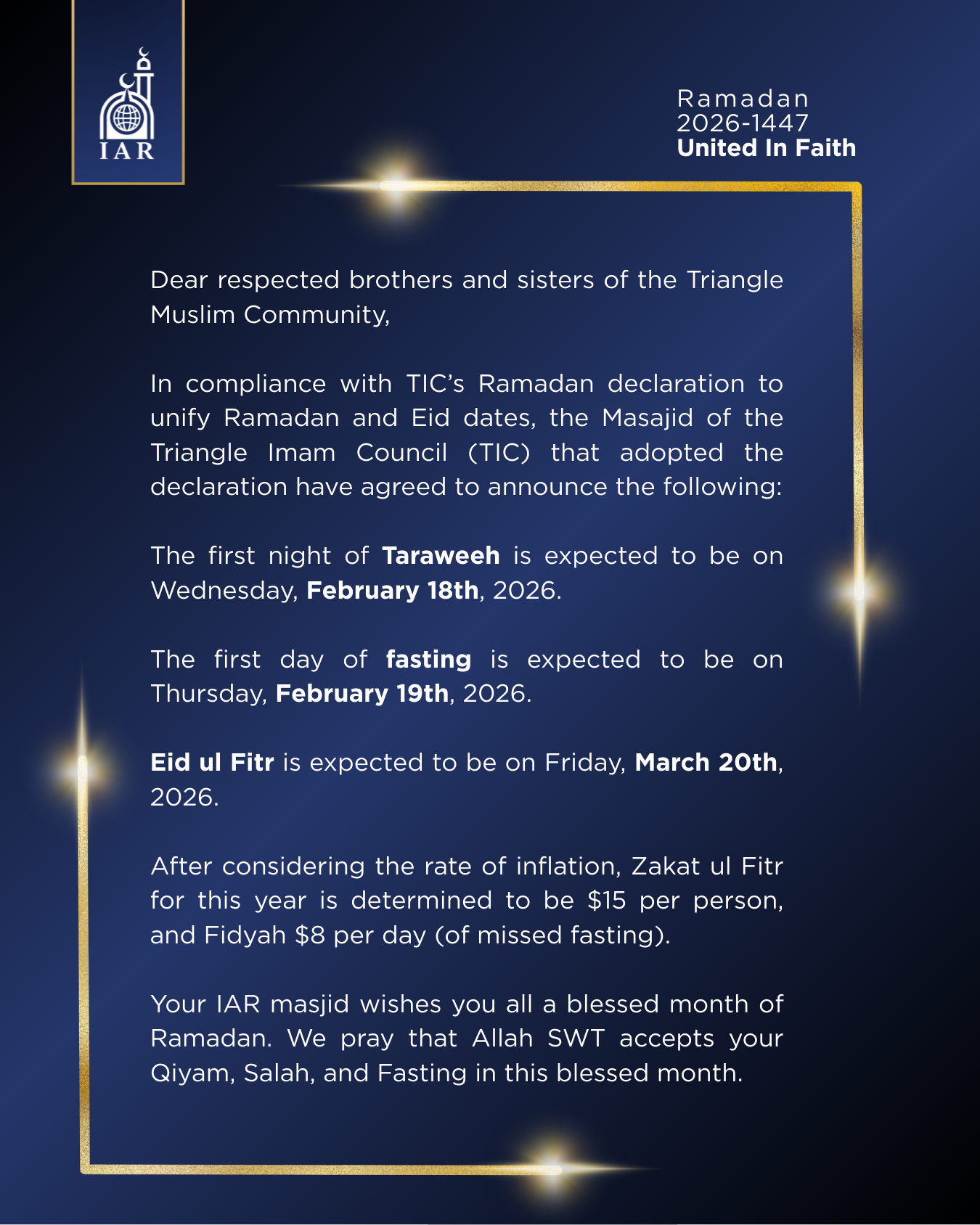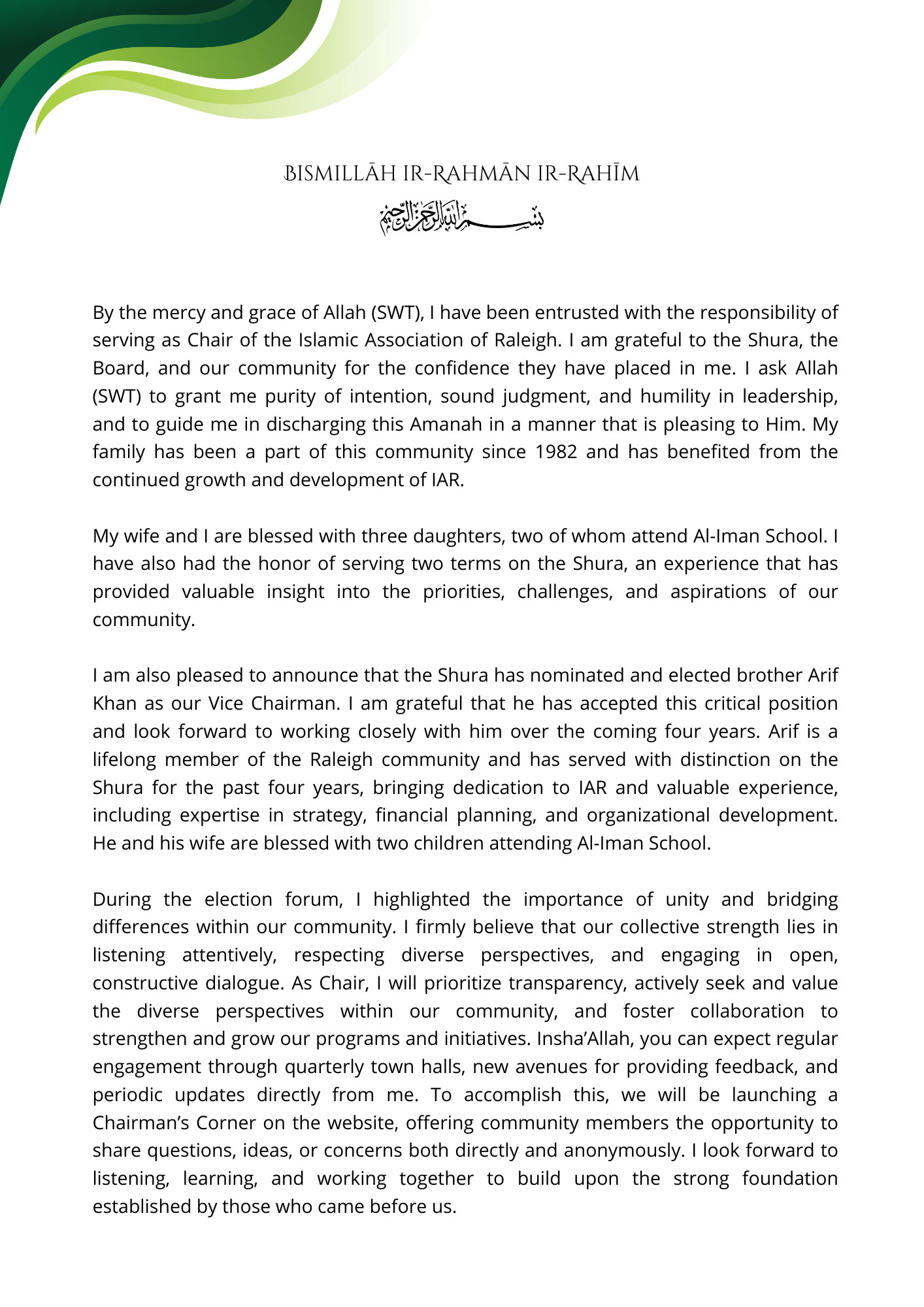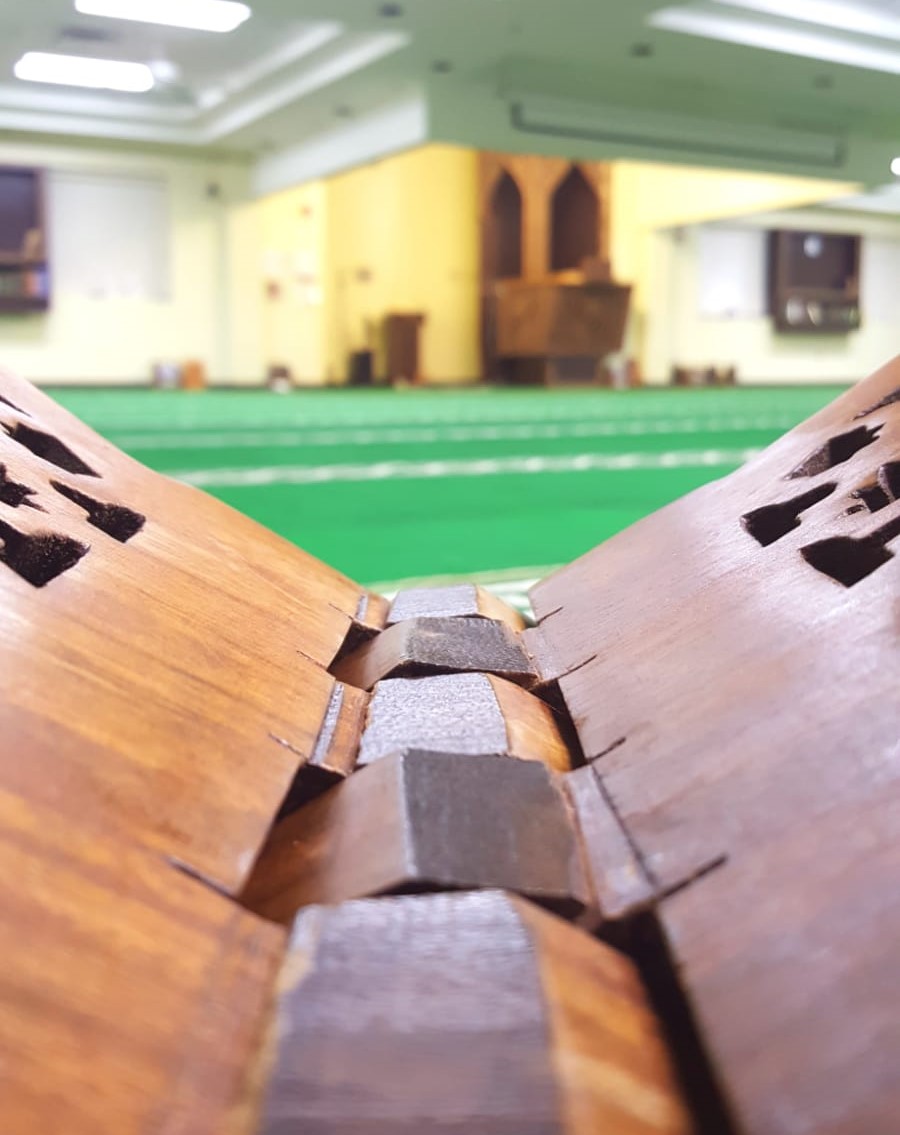When markets swing, Muslims are reminded that wealth is an amānah (trust) from Allah ﷻ:
“Believe in Allah and His Messenger and spend out of what He has made you trustees over. For those who believe and spend, there is a great reward.” (Qur’an 57:7)
That trust calls us to couple tawakkul (reliance on Allah) with sound planning. Below are six timeless investment guidelines—adapted from Fidelity’s “6 tips to navigate volatile markets” and the Islamic Association of Raleigh (IAR) Endowment’s commitment to halal, socially responsible investing.
1. Keep Perspective—Market Ups and Downs Are Part of the Test
History shows that stocks regularly dip 5–10 percent, yet long‑term trends remain upward.
Islamic insight: Trials, including financial ones, are part of qadar (Divine decree). Respond with ṣabr (patience) and avoid panic‑selling that can lock in losses. Remember the Prophet ﷺ said: “Wondrous is the affair of the believer… If prosperity befalls him, he is grateful… if adversity strikes, he is patient.” (Ṣaḥīḥ Muslim).
2. Craft a Shariah‑Compliant Plan You Can Live With
Fidelity notes that the mix of stocks, bonds, and cash drives both returns and volatility.
Islamic insight: Your asset allocation must also pass a halal screen—excluding interest‑based debt, gambling, alcohol, etc.—while matching your goals, risk tolerance, and time horizon. The Qur’an encourages wasatiyyah (moderation) in all things (2:143); likewise, avoid over‑concentration in any one asset.
3. Prioritize Time in the Market, Not Market Timing
Missing only a handful of the market’s best days can dramatically cut returns.
Islamic insight: Wealth grows through steadfastness and discipline. Just as prayer and fasting are best performed consistently, investing benefits from staying the course rather than guessing peaks and troughs.
4. Practice Istiqāmah: Invest Regularly—even During Downturns
Historically, investing during recessions has produced strong long‑term outcomes.
Islamic insight: Regular contributions (e.g., monthly “dollar‑cost averaging”) mirror the Prophet’s preference for deeds that are small but continuous (Ṣaḥīḥ Bukhārī). Pair this habit with regular ṣadaqah so your wealth purification keeps pace with your portfolio growth.
5. Seek Knowledgeable Counsel (Shūrā)
Fidelity highlights tax‑loss harvesting and other strategies best navigated with an advisor.
Islamic insight: The Qur’an commands, “Consult them in affairs” (3:159). Engage qualified professionals—financial advisors versed in Islamic finance and scholars who can vet products for Shariah compliance. At IAR, our Endowment’s Finance Committee embodies this ethos, bringing together experienced officers, a treasurer, and a Shura representative.
6. Consider a Hands‑Off, Halal‑Managed Approach
If daily market moves unsettle you, Fidelity suggests delegating to professionals.
Islamic insight: Throughout Muslim history, waqf (endowments) offered believers a way to pool resources under expert stewardship for communal benefit. The IAR Endowment continues that legacy—screening investments, diversifying globally, and reinvesting returns to strengthen our masjid, schools, and social‑service programs. By contributing, you gain exposure to professionally managed, Shariah‑compliant assets while earning continuous ṣadaqah jāriyah (ongoing charity) rewards.
Putting It All Together
Volatility is inevitable, but panic is optional. By anchoring your strategy in Islamic principles—trust in Allah, patience, moderation, continuous good deeds, and consultation—you can ride out market storms with confidence and purpose.
Ready to turn these principles into impact? Join the IAR Endowment and help build a financially resilient community for generations to come, in shā’ Allah.











